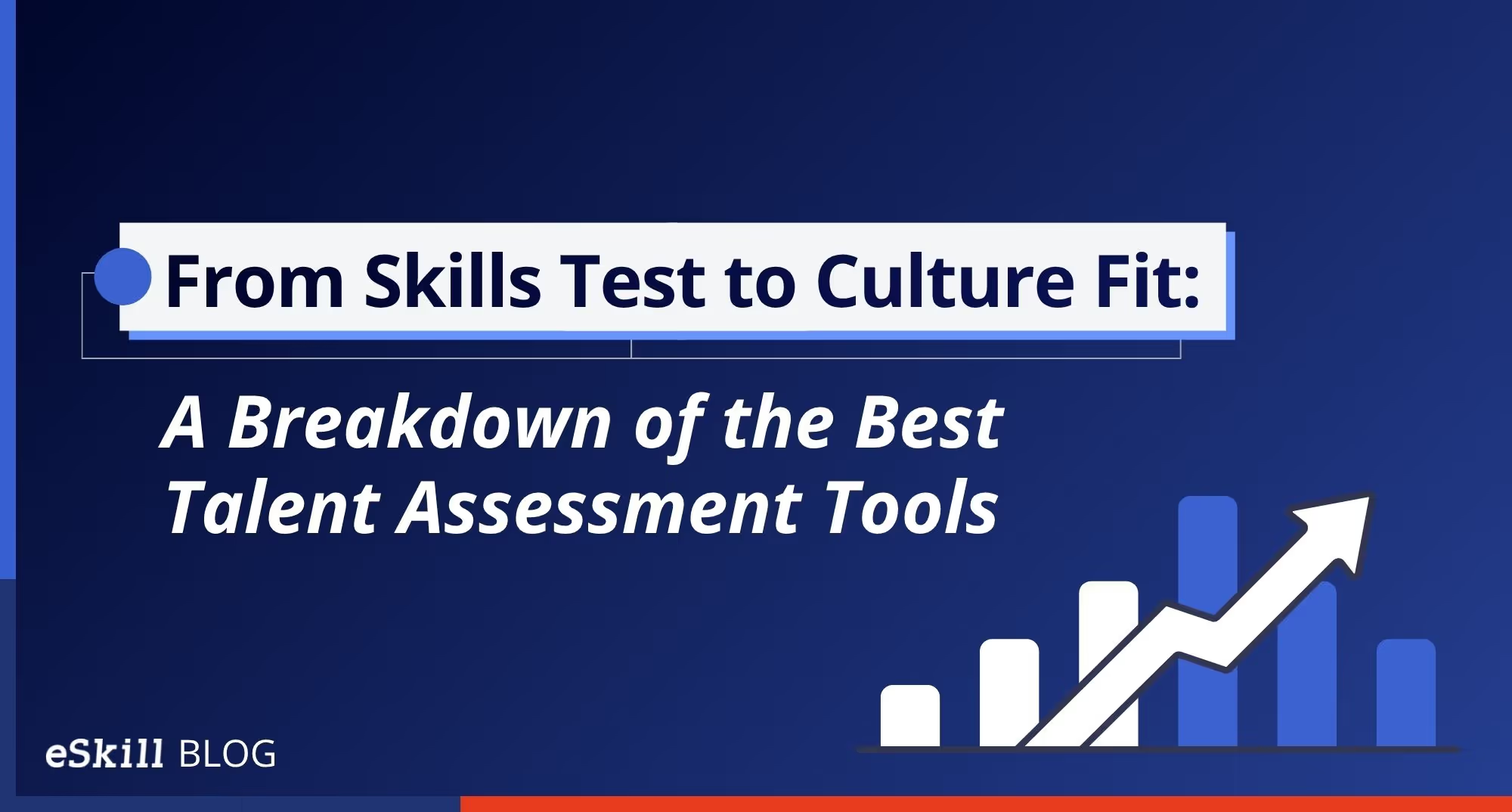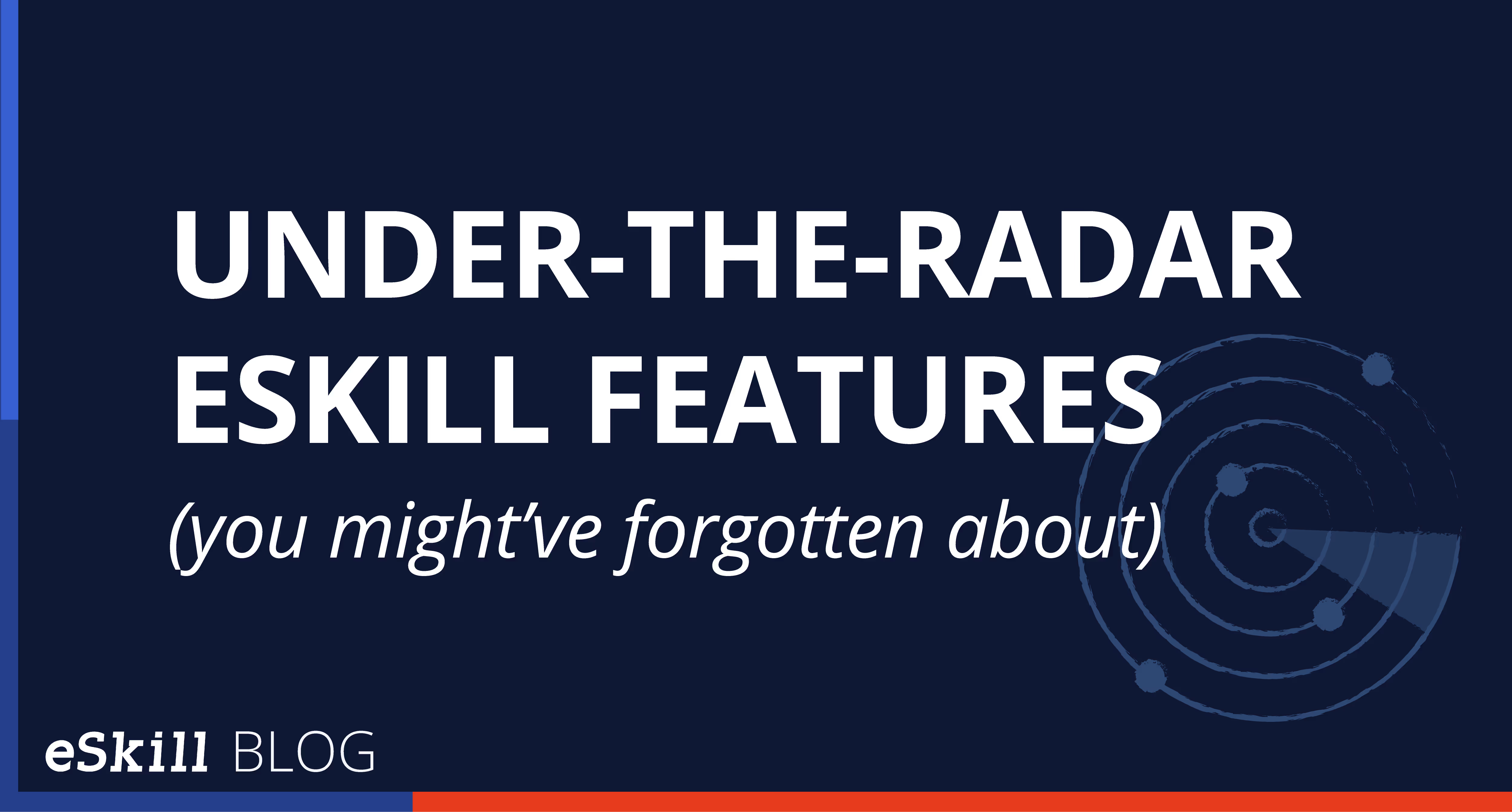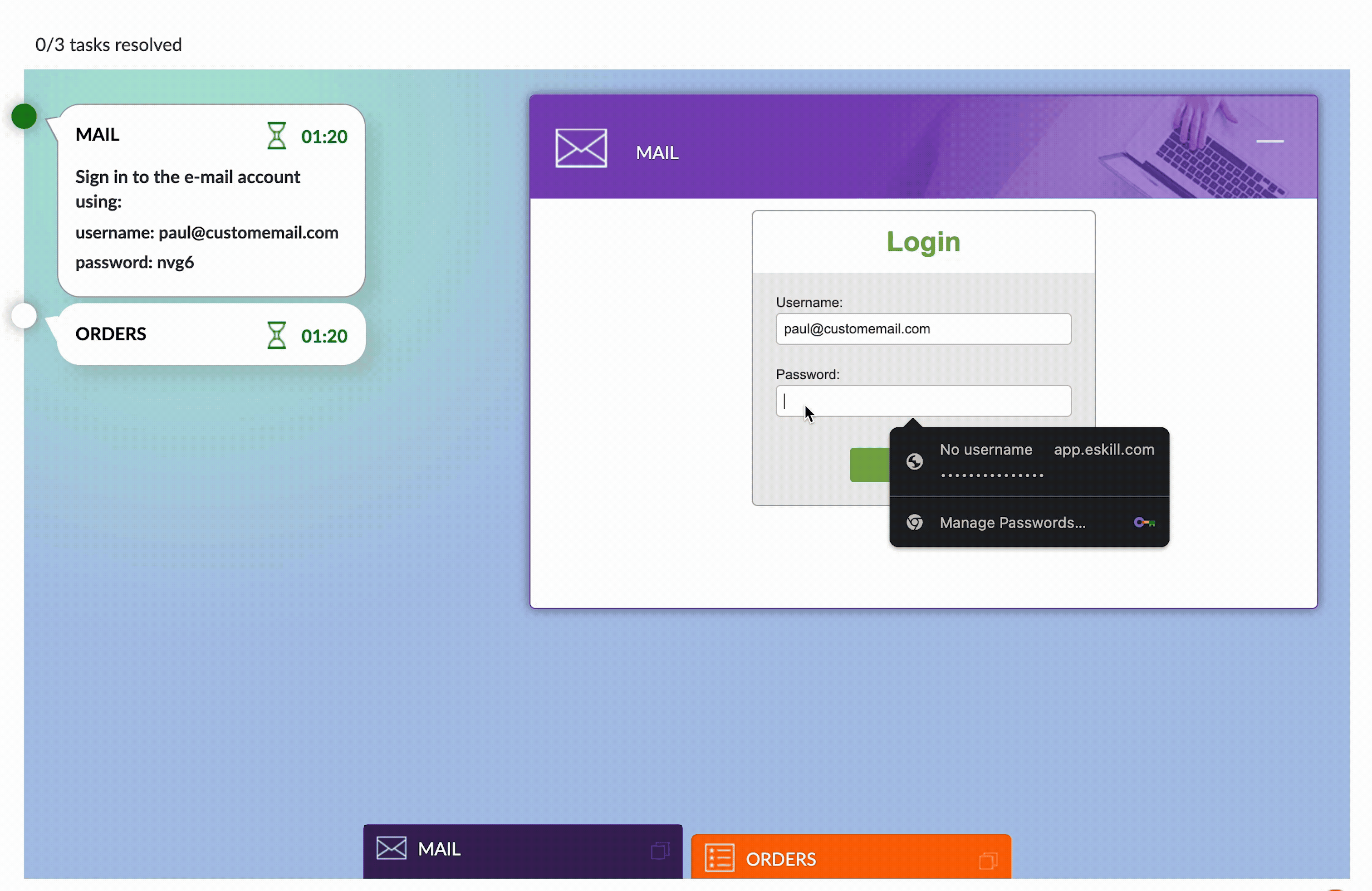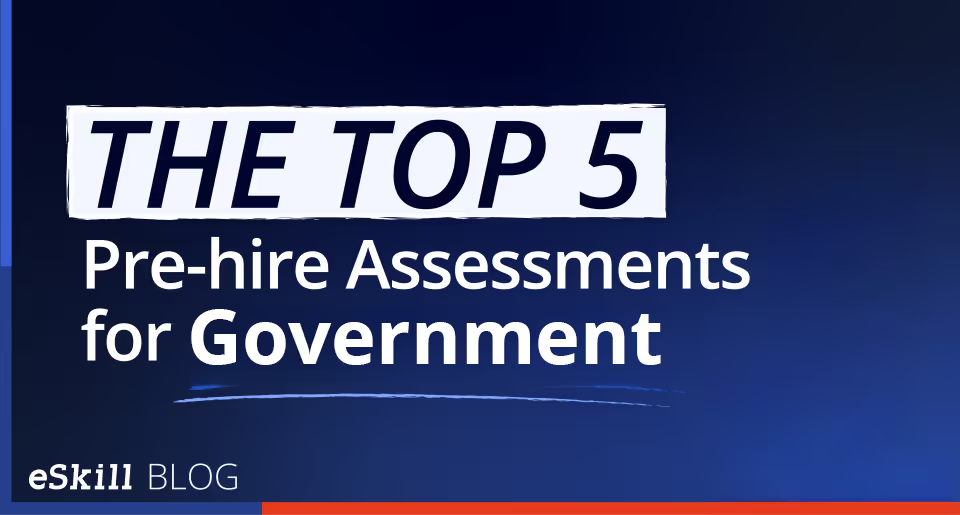Businesses understand the importance of recruiting top candidates. Their survival depends on it because a company needs leading talent to compete effectively in today’s dynamic marketplace.
If you find it challenging to find ideal candidates to fill critical roles, you are not alone. According to a Korn Ferry report, there is a global talent shortage of more than 85 million people, a number which is roughly equivalent to the population of Germany. The problem has become so severe that 71% of CEOs say recruiting and retaining top talent will be their biggest business challenge this decade.
Organizations have found that using the best talent assessment tools is the key to recruiting the best employees and improving hiring outcomes. According to a recent Society for Human Resource Management (SHRM) study, 25% of organizations that use assessment tests for employment plan to rely on them more during the next five years, and one in 10 organizations that do not currently use them will begin using them within the five years. Furthermore, 78% of HR professionals say using candidate assessment tools has helped them improve the quality of hire across their organization.
If your organization does not currently use employment assessment tests, you may be eyeing these statistics and want to know what the best pre-employment assessment tools are and how to select talent assessment companies.
What Are Employment Readiness Assessment Tools?
Employment readiness assessment tools measure the abilities, aptitudes, skills, interests, and development needs of job candidates and current employees. They help you manage your entire hiring process because you can test skills proficiency for specific jobs, measure cognitive abilities, and evaluate leadership and management competencies.
12 Different Employment Tests Employers Can Use
If you are new to assessment tests for employment, you may be wondering what types of skills tests you need. It depends on the positions you want to fill and the abilities and aptitudes you want to evaluate. These are 12 different employment tests that you can use.
- Skills Tests: Confirm that an employee can do a job. For example, if you are hiring data entry clerks with MS Word® and MS Excel® abilities, they can include questions about Word and Excel features that are essential to do the job well.
- Cognitive Tests: Assess a candidate’s ability to think, reason, solve problems, and learn new material. You should use them when recruiting applicants for a position that requires fast thinking, adaptability, and good decision-making skills.
- Numerical Tests: Consist of multiple-choice questions that help you analyze candidates’ critical thinking abilities and how well they work with numerical data. The answers show whether applicants can apply an analytical and efficient approach to managing data.
- Verbal Reasoning Tests: Present applicants with several paragraphs of written text so you can measure their comprehension and reasoning skills and their ability to draw conclusions based on what they read.
- Logical Reasoning Tests: Psychometric tests that provide you with insight into candidates’ problem-solving and decision-making abilities. A typical question might show a series of shapes or patterns and ask candidates what comes next in the sequence.
- Simulations: Present candidates with situations they will encounter on the job so you can observe how well they perform. For instance, you can use a multitasking simulation to confirm that customer service applicants can simultaneously respond to phone calls, chat messages, and email inquiries.
- Coding Tests: Help you assess candidates’ technical skills and coding proficiency using different languages and technologies, such as JavaScript, PHP, and Python.
- Foreign Language Proficiency Tests: Help you evaluate a candidate’s ability to communicate in a foreign language, including grammar, listening, pronunciation, and fluency.
- Behavioral Assessments: A Robert Waters study shows that 73% of professionals have left a job due to poor cultural fit. Behavioral assessments help you evaluate candidates’ personality and behavioral traits to see how well they will assimilate into your corporate culture.
- Personality Tests: Like a behavioral assessment, personality tests help you determine if a candidate’s personality traits are a good fit for a job and company culture, how those traits might affect their performance, and whether they will positively or negatively influence other team members.
- Situational Judgement Tests: Allows you to observe how applicants react to hypothetical job situations and see whether they can select the most efficient and appropriate response that will lead to a resolution.
- Remote Work Assessments: By 2025, 32.6 million employees will work from home. This test helps you confirm that applicants have the traits and capabilities to function effectively in a non-office environment.
How Companies Benefit from Assessment Tests for Employment
You may think you can make good hiring decisions by reviewing resumes and conducting interviews. If so, you should think again because studies show 80% of applicants lie on their resumes. This means a candidate with a perfect resume, who sounds great during interviews, could be a critical hiring error that costs your company thousands of dollars. The following scenario shows the possible negative impact.
Chelsea, the HR manager for an HVAC distributor, needed to fill a sales order/customer service representative position. After posting the job, she received resumes from some promising applicants and scheduled interviews with a few.
Jacob stood out as the top candidate. He had sales and customer service experience and was articulate and well-spoken during interviews. His resume showed that he had administrative experience, which was important since he would need to process and track orders and manage customer inquiries. When Chelsea asked him why he was considering other opportunities, he said he was ready for new challenges and more responsibility.
Jacob got excellent reviews when he interviewed with Ted, the Sales Order and Customer Service Supervisor, and Susan, the Operations Manager. His references from former managers and colleagues were also superb. Ted and Susan were sure they had found the perfect candidate and offered him the job. Then the problems started.
Jacob was rude and abrupt on the phone, which prompted complaints from several customers, sales representatives, and team members. He also had trouble managing and tracking paperwork, and several customers received shipments late or not at all.
This created problems for Ted because he was forced to correct Jacob’s errors, and, in some cases, delegate his work to other team members. This caused resentment among Jacob’s co-workers and negatively affected department morale.
Chelsea, Ted, and Susan had numerous counseling sessions with Jacob and sent him to customer service training workshops, but there was no improvement. The situation worsened and finally boiled over when Ted and Susan were called into the general manager’s office because a critical order for a key customer was late due to Jacob’s mistakes. So, Ted had no choice but to terminate Jacob.
If Chelsea and Ted had used assessment tests for employment, they could have built a skills test to assess customer service, phone skills, and administrative abilities and added questions about emotional intelligence and empathy. This would have helped them identify candidates whose test results indicated they had the skills and abilities to be successful.
How To Develop Assessment Tools
You are probably wondering how the best talent assessment tools can help you improve hiring outcomes. Different types of assessments are designed to provide different kinds of information. So, you should first determine what you want to evaluate. Then you can develop an assessment that measures the skills required to perform the job successfully.
The following example illustrates why analyzing all the job requirements is important before creating an assessment.
Brianna was a new receptionist at a real estate company that owned and managed 17 apartment and commercial properties in seven southwestern states. She was hired because she had excellent phone and people skills and previous receptionist experience at other companies. She would be responsible for several secretarial tasks, such as sending information to remote locations.
Employees who worked at the 17 external locations received their paychecks by overnight mail every other Friday (this happened before direct deposit was the norm.) On the Thursday before payday, Randall, the Accounting Manager, showed Brianna how to package the checks for each property and prepare the labels for the overnight packages. The next day, she did as he had instructed and sent the paychecks that afternoon.
The next morning, there were several urgent phone calls from property managers. Many had not received the paychecks for their staff, and others had received them for another property. This was a serious problem because many employees lived paycheck to paycheck and needed the funds immediately.
Randall and Liz, the Head Payroll Clerk, had to stop work on critical projects and call each property to determine which ones had received the wrong checks or had not received a shipment. Then, they had to contact the bank to stop payment on the existing checks, cut new checks, and ship them priority overnight.
When the company recruited candidates to fill Brianna’s position, the hiring team tested applicants for skills required for a receptionist job. However, they did not test the skills needed for the secretarial aspects of the job, such as accurate typing, organizational abilities, and attention to detail. If they had, Brianna would never have been considered for the job.
A skills test confirms applicants have the knowledge and experience to do a job. However, it does not help you determine whether they are a good fit for the job. As shown in the following example, a candidate can have the right technical skills and knowledge but be all wrong for a job.
A small software company needed a software engineer to lead a team of four developers. The firm was very casual and had a work-hard-play-hard mentality. Everyone, including senior managers, wore jeans, t-shirts, and shorts daily. Employees could work flexible hours as long as they were in the office during core business hours.
The hiring team zeroed in on Caleb because of his advanced Java programming skills and because he had experience leading software development teams. Jaimee, the vice president of Software Development, was sure she had found the perfect person for the job. However, she soon discovered how wrong she was.
Caleb’s experience was with large, structured companies. So, his management style was very direct, and he was an autocratic leader who demanded that his team follow orders without question. In short, the skills that helped him thrive in a large company with a strict chain of command did not work in a small company with a laid-back culture.
After three months, Caleb’s entire team met with Jaimee and threatened to quit, and she had no choice unless she wanted to lose the entire development team for one of the company’s best-selling products. The management team thought Caleb was the perfect hire because of his skills test results. They would have seen that he was not a good fit for the company culture if they had also asked him to complete a behavioral assessment.
What Types of Organizations Use Assessment Tests for Employment
Companies in virtually every industry look for the best talent assessment tools to simplify hiring, decrease time-to-hire, and reduce turnover. These clients from various industry sectors have improved hiring outcomes by implementing the eSkill Talent Assessment PlatformTM.
- TaskUs, is a global provider of outsourced digital and customer services that help companies protect and grow their brands. Implementing selective hiring assessments helped it improve quality of hire and reduce turnover by 25%.
- Encore Exchange, a medical billing service, began using pre-hiring assessments and decreased applicant screening time by 67% and time-to-hire by 33%. The company also improved quality of recruiting organization-wide.
- Charger Logistics, a commercial transportation company, reduced hiring costs by 30% and time-to-hire by 33% and increased employee retention to 95% when itbegan using customized pre-hiring assessments.
- Regency Recruitment and Resources Limited, an HR solutions provider, was using another pre-hiring assessment solution. When it switched to the eSkill Talent Assessment PlatformTM, it reduced recruiting costs by 50% while helping clients decrease time-to-hire.
Getting Started with Assessment Tests for Employment
When you implement a top employment assessment testing solution, you take the guesswork out of hiring and reduce recruiting costs and time-to-hire. Many eSkill clients have reduced hiring costs by 70% and decreased time-to-hire by 60%.
Are you ready to learn how the best talent assessment tools can help you streamline hiring across your enterprise? Contact us to request a demo.
Talk to sales






